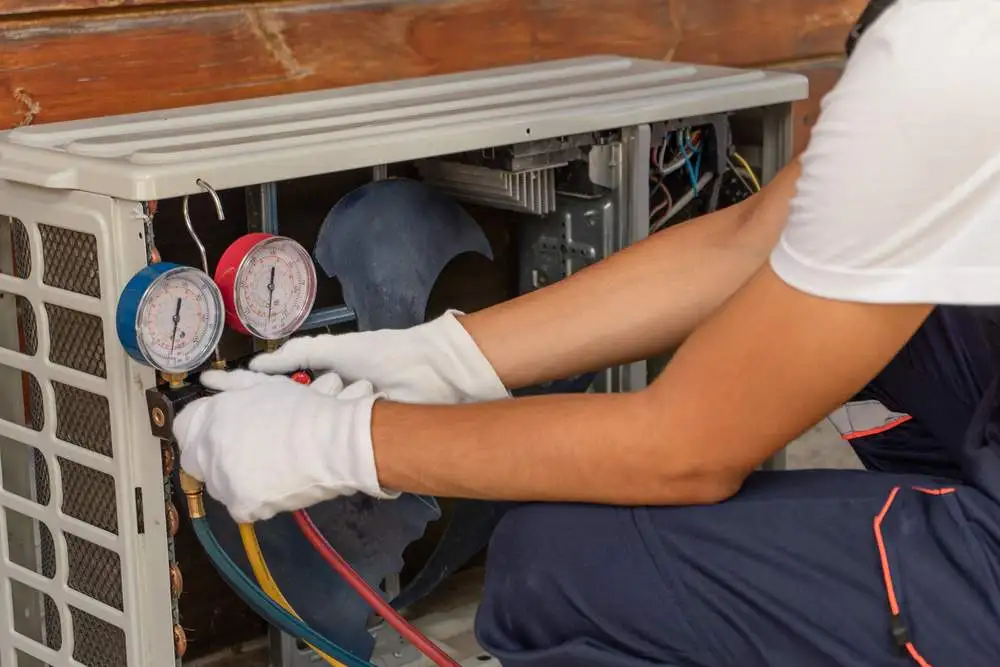By: GNV Heating and Air Conditioning
You’ve probably heard the word “Freon” whenever someone talks about air conditioners or refrigerators. But what is Freon, really? And why has it been so important for cooling systems over the years?
In this article, we’ll explain what Freon is, how it works, why it’s being phased out, and what safer alternatives are now being used.
Understanding What Freon Is
Freon is a brand name used for a group of refrigerant gases that were once widely used in cooling appliances. These gases help remove heat from inside a space, making the air cooler. Freon was especially popular in older air conditioners, freezers, and refrigerators.
The most well-known type of Freon is R-22, a kind of chlorofluorocarbon (CFC). It worked well for decades—but over time, experts realized it causes damage to the environment.
How Freon Works Inside Cooling Systems
To fully understand what Freon is, it’s important to know how it functions in a cooling system.
Here’s a simplified look at the process:
-
Compression – Freon gas is compressed, increasing its temperature.
-
Condensation – The gas cools down and turns into a liquid, releasing heat outside.
-
Evaporation – The liquid moves inside, evaporates, and absorbs heat from the room.
-
Cycle repeats – This process runs continuously to maintain cool temperatures.
Thanks to this cycle, your air conditioner or fridge keeps the temperature where you want it. what is Freon
Why Was Freon Used So Widely?
For many years, Freon was the go-to choice for cooling systems. It was easy to use, reliable, and highly effective at transferring heat. Whether in homes, vehicles, or offices, Freon was everywhere.
So when people ask, “What is Freon used for?“—the answer is simple: it powered nearly every cooling appliance before newer alternatives came along.
Is Freon Still in Use?
Although Freon (R-22) was common in older systems, it is no longer used in newer models. This change happened because Freon contributes to ozone layer depletion. As a result, production and import of R-22 were banned in many countries.
However, some older air conditioning systems may still rely on it. If your unit was made before 2010, it’s worth checking what type of refrigerant it uses.
Why Is Freon Harmful to the Environment?
When leaked into the air, Freon releases chlorine and , which damages the ozone layer—a natural shield that protects Earth from harmful UV rays.
The thinning of the ozone layer has led to:
-
More UV exposure
-
Higher skin cancer rates
-
Negative effects on wildlife and ecosystems
That’s why there’s been a global effort to phase out ozone-depleting substances like R-22 Freon.
Modern Alternatives to Freon
Thankfully, today’s cooling systems use eco-friendly refrigerants that don’t harm the atmosphere. These include:
-
R-410A (Puron) – Common in residential AC units and much safer for the environment.
-
R-134a – Frequently used in car AC systems and some home refrigerators.
-
R-32 – A newer, more energy-efficient refrigerant with a lower global warming potential.
These alternatives are not only safer—they also perform better in most cases.
Can You Still Get Freon for Old AC Units?
If you have an older HVAC system that runs on R-22 Freon, you may still be able to buy recycled or recovered supplies. But it’s expensive and hard to find.
You have a few options:
-
Keep using Freon if the system works, but be prepared for high service costs.
-
Retrofit your AC to use a modern refrigerant, which may extend the unit’s life.
-
Replace the system with a newer, energy-efficient model that uses a safer refrigerant.
Signs Your AC Might Be Low on Freon
what is Freon?, Is your AC blowing warm air or taking forever to cool your space? These could be signs of low Freon levels:
-
Air from vents feels warm or less cool than usual
-
Your AC takes longer to cool rooms
-
You hear bubbling or hissing sounds from the unit
-
Ice builds up on the evaporator coils
If you notice any of these symptoms, call a licensed HVAC technician to inspect the system.
Why AC Maintenance Is Important—Especially With Freon
If your system still uses Freon, regular maintenance is essential. A leak can harm both your health and the environment. Plus, it can reduce your AC’s performance and drive up your energy bill.
Routine inspections help:
-
Detect and fix leaks early
-
Improve cooling efficiency
-
Save energy
- Extend the lifespan of your system
what is Freon
The Future of Refrigerants
As the world shifts toward sustainability, refrigerants are evolving too. Newer options are being developed with low environmental impact and high performance in mind.
Soon, most HVAC systems will run entirely on eco-friendly refrigerants that don’t damage the ozone layer or contribute to global warming.
Final Thoughts
To sum it up: What is Freon? It’s a refrigerant that helped revolutionize cooling—but it’s now outdated due to its environmental effects. As a result, safer alternatives have taken its place in modern HVAC systems.
If your system still uses Freon, it may be time to consider an upgrade or retrofit. Doing so will reduce your energy costs and your carbon footprint.
Need Help With Your AC or Refrigerant?
Contact GNV Heating and Air Conditioning for expert advice, reliable repairs, and eco-friendly upgrades. We’re here to keep you cool—responsibly.
Free post – Click Here
